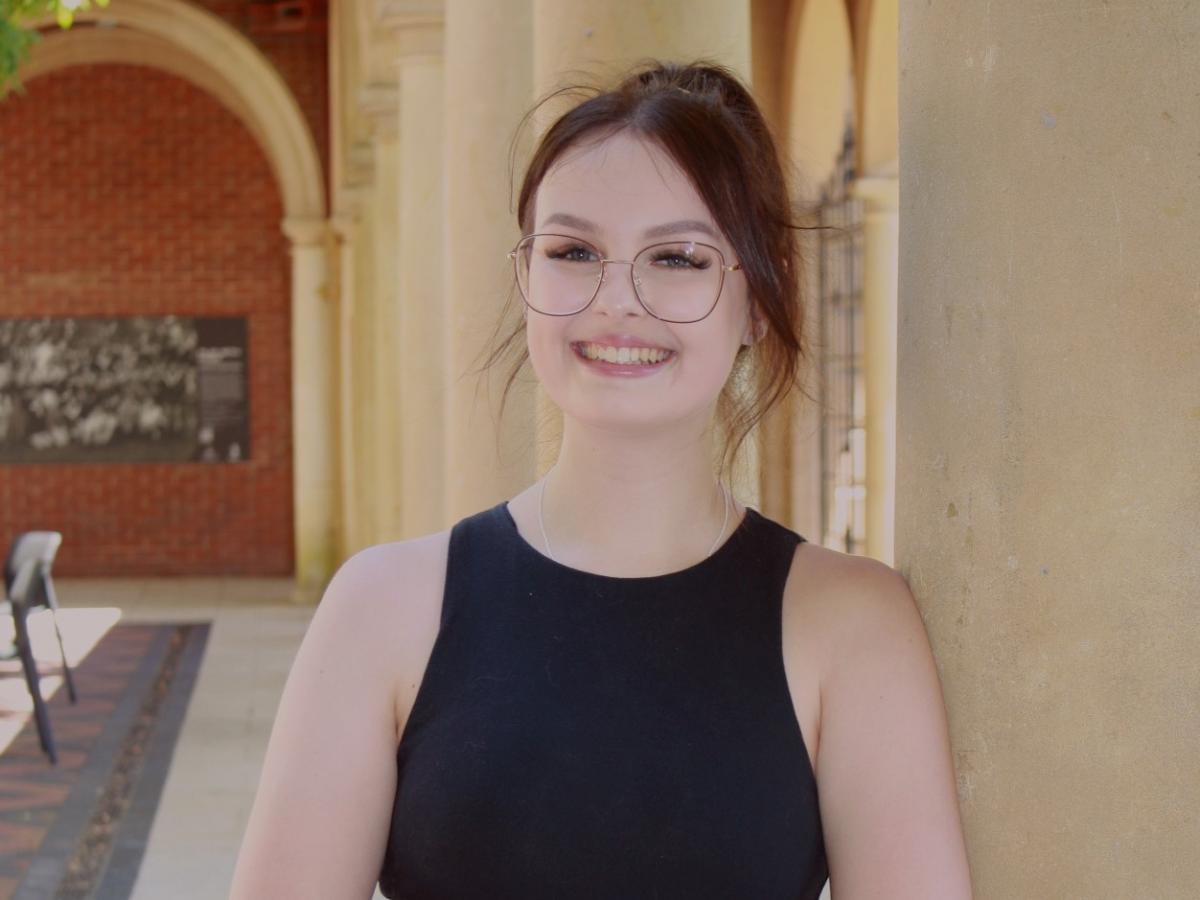
Aleesa Harmse
Young achievers are embracing the next stage of their lives by taking up places in programs at the University of Adelaide that will set them up as leaders of the future. Demand for programs in core areas such as health remains strong, and the University continues to focus on catering for the need for professionals in cutting-edge hi-tech industries such as cyber security.
Deputy Vice-Chancellor (Academic) of the University of Adelaide, Professor Jennie Shaw, said the University of Adelaide has a comprehensive suite of offerings.
"The University of Adelaide offers a range of subject choices and skills development that allows students to build their own future and their future career," Professor Shaw said.
"Students are opting to undertake quality education at one of the world's top universities because it offers them the best opportunity to excel in life.
"The new cohort of students will bring fresh ideas and new perspectives to the University of Adelaide, which is continually adapting the programs it offers as expectations and needs change with each new generation of life-long learners."
The top five undergraduate programs are Medical Science, Dental Surgery, Nursing, Veterinary Science and Arts.
Undergraduate courses in the School of Allied Health Science and Practice - now entering its second year - continue to be popular with strong demand for places in Physiotherapy, Occupational Therapy and Speech Pathology programs.
Postgraduate programs offered by the University enable early career professionals to build on their expertise or to change their field of expertise.
Most popular postgraduate courses, which reflect continued demand for health professionals, include Clinical Psychology, Counselling and Psychotherapy, and Nursing.
Postgraduate programs in cyber security and other high-tech areas expose students to real-world business scenarios which will equip them with the skills to respond to the urgent demand for security professionals in these growing fields.
During their university careers students will have the opportunity to make connections with people in their chosen fields through the long-term links that the University of Adelaide maintains with professional and research organisations at the forefront of Australia's future. The connections that the University has with future employers ensure that their workforce needs are factored into programs offered to the next generation of leaders.
"Internships and placements ensure that when students complete their programs they will be equipped with the skills and experience to give them a competitive advantage when they reach for the first rung of their chosen career ladder beyond university," said Professor Shaw.
Between 2017 and 2021 the number of female domestic students in STEM programs has increased by 38 per cent and women now account for more than a third of all students commencing in these programs.
Aleesa Harmse is starting the second year of her Bachelor of Electrical and Electronic Engineering.
"At school, like a lot of women, I was encouraged to aim for a career in caring roles in the health sector. I tried pharmacy but I knew that my real interest lay in engineering," she said.
"People often don't realise how cool engineering and STEM subjects can be. There are a lot of similarities, such as developing problem-solving skills, between different STEM subjects."
Since 2017 there has been a steady increase in uptake in STEM subjects by women at the University of Adelaide. The increase in women starting STEM subjects (38 per cent) from 2017 to 2021 is more than double the increase in male starters (15 per cent). In 2017, the commencing class was 29 per cent female and in 2021 it was 33 per cent.
Out of a total of 1452 domestic students commencing STEM subjects in 2017, 421 were female. In 2021 a total of 1772 domestic students commenced STEM subjects of which 583 were female.
Many of this year's cohort of undergraduates will not be new to the University. High achieving secondary school students who participated in the University's Headstart scholarship program have already been studying part-time at the University during Year 12.
They already have a taste of what university life is like before they even finished school, and had the opportunity to contribute to and benefit from, the diverse cultural and intellectual life of the University of Adelaide.
"This year's new cohort of students will have the best opportunity to contribute to solving society's challenges and make history like so many members of the University of Adelaide's community," said Professor Shaw.
"I welcome all our new students to the University of Adelaide."
The University of Adelaide will continue to make offers to programs over the coming weeks. Student advisors are available to provide helpful advice to students who have not received their first preference or might still be considering university study.
For more information about studying at the University of Adelaide, visit: www.adelaide.edu.au






